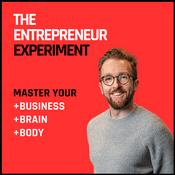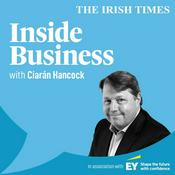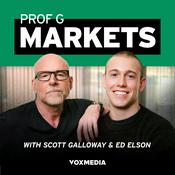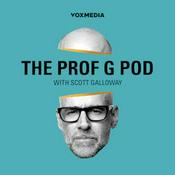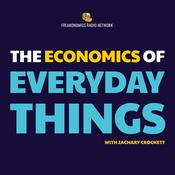57 episodes

Top 25-The Frequency of Authenticity
31/12/2025 | 23 mins.
Welcome to the show! https://www.captivatetheroom.com General Overview Conversation Summary: In this solo podcast episode, host Tracy Goodwin discussed the concept of authenticity as the highest frequency of sound. She critiqued the popular but, in her view, unsubstantiated claims circulating online about the "Spain scale of emotion" proving this. Instead, she argued that authenticity's power stemmed from the pure alignment of one's sound with their true feelings and intentions. Goodwin explained that achieving this alignment was difficult due to psychological barriers she called "voice masks" and "voice stories," which caused people to hide or fabricate emotions. She asserted her ability to hear these misalignments and nuances in what she termed the "seventh layer of sound." She used examples to illustrate how inauthentic sounds created a disconnect with listeners and argued that revealing all shades of emotion, not just positive ones, was the key to genuine connection and success. Key Points Authenticity was described as the most powerful frequency not because of a specific study, but because it represented a pure, unadulterated sound that was in perfect alignment with a person's true feelings. The speaker argued that it was not simple to "just be authentic" because most people had layers of "voice masks" and "voice stories" that caused them to cover up, fabricate, or misrepresent their true emotions. Misaligned sounds, such as pretending to be excited or fabricating sadness, were said to create a disconnect that repelled listeners because the subconscious mind could detect the inauthenticity. The speaker claimed she possessed a unique ability to hear every nuance and shade of feeling in a person's voice, which she called the "seventh layer of sound," allowing her to identify what was real and what was a mask. True vocal power and the ability to connect with others came from unearthing these psychological barriers and learning to express the full spectrum of one's emotions, not just a single, fabricated, or socially acceptable one.

Top 25-Is Authentic Enough with Rachel Coons
29/12/2025 | 49 mins.
Welcome to the show! https://www.captivatetheroom.com General Overview Interview Summary: The host, Tracy Goodwin, interviewed business owner Rachel Coons to analyze the nuances of vocal delivery in sales and marketing. They discussed a previous live coaching session that had helped Rachel improve her video presence and increase conversions. The core of the conversation was an analysis of a recent voice message campaign Rachel ran that failed to convert customers. Tracy identified that Rachel's vocal tone, driven by a fear of being "salesy" or bothersome, came across as rushed, detached, and indifferent. Through live coaching, they workshopped a more authentic, caring, and effective vocal approach for Rachel to use in her upcoming launch, focusing on genuine connection rather than just conveying information. Interviewee Background: Rachel Coons was described as a wife and mother of four who had started a business from home. She ran a membership program for moms focused on personal finance, including budgeting, investing, and making money from home. Her business, which began by teaching a method to save money on groceries, had grown to nearly 1,400 members in two years. Key Points Rachel recounted how she had initially prioritized engagement metrics over connection in her videos but learned from Tracy that focusing on authentic vocal delivery led to better conversions. She shared her disappointment with a recent voice message campaign where she contacted 50 potential customers but only converted two, despite feeling she had been authentic. Through Tracy's analysis, Rachel realized her vocal delivery in the messages was rushed and conveyed indifference because she was afraid of pressuring or bothering the recipients. Rachel identified that she wore a "professional" vocal mask because she feared her naturally fun, "cheerleader" personality would make her seem less credible as a money coach. After the on-air coaching, she expressed a renewed commitment to using voice messages, but with a new approach focused on genuine care and connection to attract the right clients.

People Pleasing and Sales
26/12/2025 | 26 mins.
Welcome to the show! https://www.captivatetheroom.com General Overview Conversation Summary: The host, Tracy Goodwin, delivered a solo podcast episode about the negative impact of the "mask of people pleasing" on sales and communication. She defined this "voice mask" as a set of protective vocal habits that cause a speaker to neutralize their personality, block genuine connection, and sound tentative. Goodwin argued that in a sales context, this focus on being liked rather than serving the client led to a loss of authority and business, as the speaker was often perceived as indifferent or lacking confidence. She supported her points with anecdotes from her coaching practice, explained that these masks stemmed from deeper issues like imposter syndrome, and proposed that the solution was to release the need for approval and focus on creating an authentic "voice experience" for the listener. Key Points The "mask of people pleasing" was identified as the most common and destructive vocal pattern in sales, causing individuals to neutralize their personality and block connection. People pleasers in sales mistakenly believed they must be liked to make a sale, which led them to hide their passion and expertise, resulting in a flat delivery that was perceived as indifference. The vocal habits associated with this mask, such as sounding tentative or ending statements with a rising intonation (lilt), undermined the speaker's authority and subconsciously asked for permission. These vocal masks were described as habits built on deeper insecurities, imposter syndrome, and a lack of self-worth, which surfaced in high-stakes situations like selling or job interviews. The recommended solution was to stop focusing on the outcome of being liked and instead concentrate on serving the client and revealing one's authentic self through their voice.

Top-25 Identity with Okhee Lee
22/12/2025 | 1h 12 mins.
Welcome to the show! https://www.captivatetheroom.com General Overview Interview Summary In an interview on the "Captivate the Room" podcast, Professor Okhee Lee discussed her personal and professional journey, from growing up in a remote South Korean village to becoming a leading academic in STEM education at New York University. She detailed her work focused on multilingual learners, advocating for an asset-based approach that recognizes their inherent capabilities. A significant portion of the conversation centered on her transformative experience with voice coaching, which she began at age 60. Lee explained how this training helped her overcome layers of self-imposed silence rooted in her cultural background, gender, and profession. She articulated a profound connection between finding her physical voice and claiming her identity, which empowered her to advocate for herself, win numerous awards, and become a more impactful public intellectual. Interviewee Background Okhee Lee was a professor in the Steinhardt School of Culture, Education, and Human Development at New York University. Her expertise was in STEM (science, technology, engineering, and mathematics) education, with a specific focus on promoting equity, justice, and language learning for all students, particularly multilingual learners. Her work involved integrating science, language, and computational thinking to address major societal challenges. She was the recipient of many honors and awards for her contributions to the field. Key Points Okhee Lee's work shifted the educational paradigm from viewing multilingual learners through a deficit lens (e.g., "limited English proficient") to an asset-based perspective that values their diverse knowledge and languages. She advocated for making complex STEM concepts tangible and accessible by grounding them in real-world phenomena, such as studying garbage to understand decomposition and the conservation of matter. Her personal journey was one of determination, where she had to "beat the system" by earning high test scores to convince her family to let her study in the U.S. instead of getting married. At age 60, she undertook voice coaching which she described as a profound, identity-shifting experience. It helped her unpack and overcome layers of self-silencing stemming from being an Asian American woman in a male-dominated academic field. She argued that speaking and listening are fundamental skills that are critically undervalued in society and academia, unlike reading and writing, which often serves to silence certain groups. Finding her voice physically allowed her to find her voice academically and personally, leading her to assert her right to be recognized for her work and to actively mentor others.

Top 2025-Wounded Voice
18/12/2025 | 25 mins.
Welcome to the show and to the series that I'm ending 2025 with. I'm rolling out my top 5 episodes of 2025. This was one of my personal favorites. Everyone has a wounded voice and they don't realize it. If we just heal the wound, the don't actually fix the voice, the voice has to be dealt with as well. I hope you enjoy this series and best wishes for a very happy holidays. Have you taken my voice mask quiz? https://quiz.tryinteract.com/#/621a5513edca630018200027 Are you ready to rewrite your voice wounds and finally find your real voice? Here are two options to work with me. The Voice Code https://www.captivatetheroom.com/voicecode Voice Mastery https://www.captivatetheroom.com/voicemastery
More Business podcasts
Trending Business podcasts
About Captivate the Room
Listen to Captivate the Room, The Diary Of A CEO with Steven Bartlett and many other podcasts from around the world with the radio.net app

Get the free radio.net app
- Stations and podcasts to bookmark
- Stream via Wi-Fi or Bluetooth
- Supports Carplay & Android Auto
- Many other app features
Get the free radio.net app
- Stations and podcasts to bookmark
- Stream via Wi-Fi or Bluetooth
- Supports Carplay & Android Auto
- Many other app features


Captivate the Room
download the app,
start listening.




